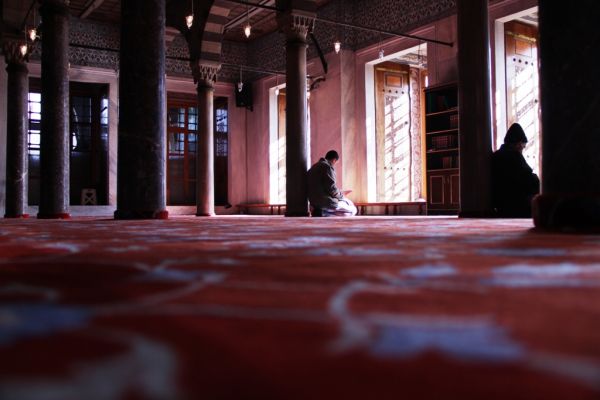How to Balance this World and the Hereafter?
 Many matters mentioned in the Holy Quran and Islamic narrations may seem to be in contradiction with each other. Among these matters are the world and the hereafter.
Many matters mentioned in the Holy Quran and Islamic narrations may seem to be in contradiction with each other. Among these matters are the world and the hereafter.
In some traditions, we see that the world is blamed, and staying away and renouncing it is praised but in the other traditions we see that the world is extremely important in our progress towards perfection of being and building our homes for the hereafter.
Islam warns us not to take the world as our sole objective in life. Rather, it teaches us to use it and its bounties and riches for reaching our true objectives: perfection of being, God’s pleasure, and paradise. It also encourages us to make our works solid and firm and not to be careless in our actions.
But how it is possible to balance this world and the hereafter. One of Imam Hasan ’s statement can help us too much in this regard:“Work for the world as if you are going to live forever and work for the hereafter as if you are going to die tomorrow.”
This valuable statements give us two different strategies for improving our both the world and the hereafter without realizing any contradiction between them:
- “Work for the world as if you are going to live forever”
This part of the narration deals with how we should deal with the world. This sentence can be defined in two ways:
The first is that we should carry out our worldly tasks with firmness, foundation, and basis. We shouldn’t think that these few days in the world are worthless so it leads to careless and tactless work. Although we know very well that we will not live here forever, we must work as if we will so that our work is lasting and solid. Even if we die and cannot make use of it anymore, others will be able to benefit from our labor.
The Holy Prophet (peace be upon him and his progeny) has said: “God the Exalted loves it when one of you takes on a task and performs it well.” In another place, he said: “God the Exalted loves of a worker who does good work.” And after his son Ibrahim (peace be upon him) was buried, the Holy Prophet saw a hole in his grave and filled in and fixed it himself. Then he said: “When one of you takes on a task, do it firmly.”
The second is that we should not rush and hasten towards worldly tasks. Do not think that it will leave you. If it isn’t done today, then you can do it tomorrow, and if not tomorrow, then the next day. Think that you will live forever. However, when it comes to working for the hereafter, you must hasten and rush to get it done. Do not leave today’s task for tomorrow, because tomorrow might not come, and then you will regret missing that chance.
- “Work for the hereafter as if you are going to die tomorrow.”
This part of the narration deals with how we should deal with the hereafter. This part also has two meanings:
The first is that a person who is traveling the path towards success and believes in life after death must hasten and rush towards doing works for the hereafter. Whenever he is presented with an opportunity to do a task for the next world, he must hurry to carry it out without wasting any time.
Although haste is highly discouraged in Islam, because it wants its followers to think and contemplate before acting, this is one of the circumstances where rushing is praised. In one verse from among many in regards to this matter, the Holy Qur’an states: “And hasten toward the forgiveness of your Lord and paradise whose width is that of the heavens and the earth, [and it is] prepared for the pious self-controlling ones.” (3:133)
In this verse, God commands us to rush towards His forgiveness. Perhaps it means towards those good acts because of which God forgives His servant’s sins. Then it continues to say rush towards paradise whose width is that of the heavens and the earth. We know from Islamic narrations that this universe with all of its galaxies and celestial bodies, including the Earth, are all part of the first heaven or sky. In addition to this heaven, there are six more. Thus, it is possible that the size of paradise is equal to this universe and many more like it. We also know that gaining paradise can only be done through faith and righteous actions. Therefore, the verse is telling us to hasten towards faith and righteous deeds.
Furthermore, the verse states that this paradise is prepared for the pious and self-controlling ones. This means that a person must rush towards and carryout such works that will foster Taqwa (self-control) in him and make him of the pious ones.
Imam Ali (peace be upon him) has said: “Take precedence and hurry to do good deeds before you are occupied by other than it.” If a person spends his entire day performing good deeds, then he does not have any time left to carry out bad deeds.
The second and the last is that Living in this sophisticated and sinful world as a committed Muslim is difficult. When we imagine that this is our last day in this word, it makes us calm and prepared to bear the difficulties of being a religious man in this world more easily.









